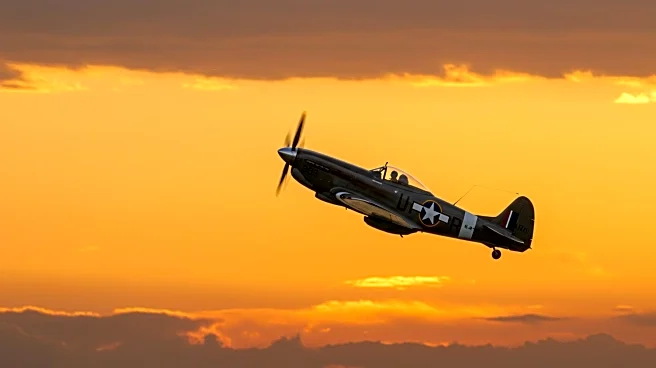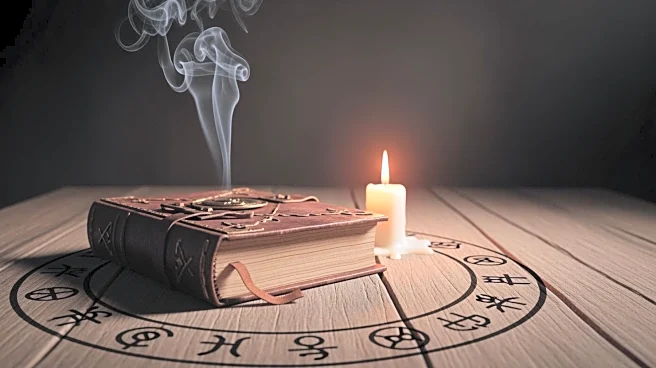What is the story about?
What's Happening?
John Cruickshank, the last surviving World War Two Victoria Cross recipient, has died at the age of 105. Cruickshank, a flight lieutenant from Aberdeen, was awarded the Victoria Cross for his bravery during an air attack on a German U-Boat in June 1944. Despite suffering 72 injuries, including wounds to his lungs and lower limbs, he successfully completed the mission, destroying the submarine. His actions earned him the Victoria Cross, the highest military honor for valor in the British and Commonwealth Armed Forces. Cruickshank's family announced his passing last week, with a private funeral planned.
Why It's Important?
John Cruickshank's death marks the end of an era, as he was the last living recipient of the Victoria Cross from World War Two. His bravery and dedication serve as a poignant reminder of the sacrifices made by those who served during the conflict. The Victoria Cross is a symbol of extraordinary valor, and Cruickshank's story highlights the courage and resilience of military personnel. His passing may prompt reflections on the legacy of World War Two veterans and the importance of honoring their contributions to history.
What's Next?
With Cruickshank's passing, there may be renewed interest in documenting and preserving the stories of World War Two veterans. Military historians and organizations dedicated to veteran affairs might focus on ensuring that the experiences and sacrifices of these individuals are not forgotten. Additionally, discussions around the significance of military honors like the Victoria Cross could emerge, emphasizing the need to recognize and support current and future service members.
Beyond the Headlines
Cruickshank's story underscores the ethical and cultural dimensions of military service, including the notion of duty and sacrifice. His reluctance to discuss his wartime experiences reflects a common sentiment among veterans, highlighting the personal and emotional challenges they face. This event may lead to broader conversations about how society supports and engages with veterans, particularly in terms of mental health and recognition.
















